Information democracy
Powerful companies and governments control the way the internet and new technologies are deployed. These actors blur the lines on corporate power in ways that have tremendous impact on people and democracies. The dominant business model of ‘Big tech’ platforms is based on surveillance, polarization and power imbalances. This ‘surveillance capitalism’ has had a global impact on democracy. For example, state and private actors can use the internet and technologies to spread political disinformation, to manipulate electoral results, to attack human rights defenders and to limit civic space.
Filter resources
-
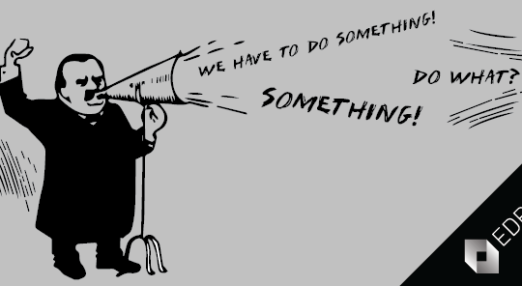
Christchurch call − pseudo-counter-terrorism at the cost of human rights?
The Prime Minister of New Zealand Jacinda Arden showed compassionate and empathetic leadership in her response to the Christchurch terrorist attack on a mosque in her country on 15 March 2019. On 16 May in Paris, Arden and the French President Emmanuel Macron co-launched the Christchurch Call to Action to Eliminate Terrorist and Violent Extremist […]
Read more
-

Hey Google, where does the path lead?
If you do not know the directions to a certain place, you use a digital device to find your way. With our noses glued to the screen, we blindly follow the instructions of Google Maps, or its competitor. But do you know which way you are being led?
Read more
-

Google-Huawei case highlights the importance of free software
Google denies the Chinese IT giant Huawei access to Google’s proprietary components of the Android mobile operating system, which threatens IT security. This highlights the importance of free software for technology users, public bodies, and businesses.
Read more
-

NGOs call to ensure fundamental rights in copyright implementation
Today, on 20 May 2019, EDRi and 41 other organisations sent an open letter to the European Commission.
Read more
-

EDRi strategic planning: A collective journey towards a strengthened network
On 6 and 7 April, European Digital Rights (EDRi) network held its General Assembly in London. EDRi members elected three new Board members and a new President, Anna Fielder, a long-standing privacy expert, who succeeds Andreas Krisch – EDRi President of ten years who lead the network through years of achievements and milestones. This General […]
Read more
-

SIN v Facebook: Tech giant sued over censorship in landmark case
On 7 May 2019, Civil Society Drug Policy Initiative (SIN), a Polish non-profit organisation promoting evidence-based drug policy, filed a lawsuit with the support of the Polish EDRi member Panoptykon Foundation, against Facebook in a strategic litigation case aimed at fighting private censorship on the internet.
Read more
-
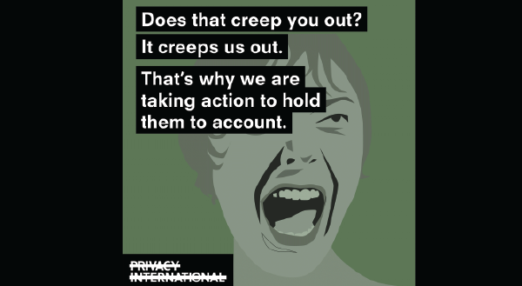
EU elections – protecting our data to protect us from manipulation
The campaigns for the European Parliament elections that will take place on 23-27 May 2019 are well under-way. Since the last elections in 2014, much has changed in the way political campaigns are conducted. Central to these changes is the role played by our data.
Read more
-
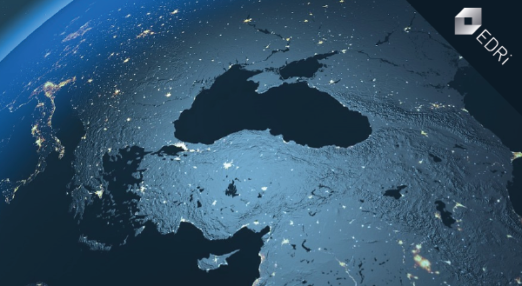
Turkish civil society: Declaration on the state of the internet
On the occasion of the Internet Week (11-24 April 2019) and the 26th anniversary of the arrival of the internet in the country, Turkish civil society organisations focusing on digital rights have released a declaration on the state of the internet.
Read more
-
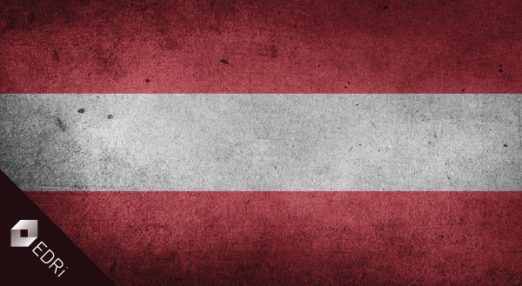
Austria: New “responsibility” law will lead to self-censorship
Shortly after the EU gave green light to upload filters, two laws were proposed in Austria, with the alleged goal of tackling online hate speech, that rang the alarm bells.
Read more
-

What the YouTube and Facebook statistics aren’t telling us
After the recent attack against a mosque in New Zealand, the large social media platforms published figures on their efforts to limit the spread of the video of the attack. What do those figures tell us?
Read more
-
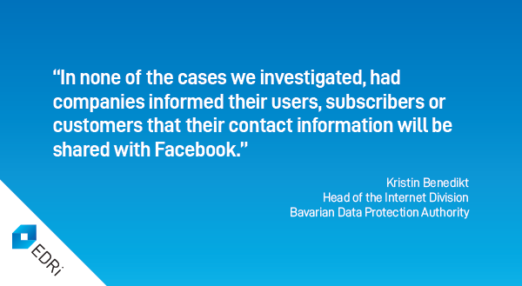
Facebook Custom Audience illegal without explicit user consent
Online shops and marketers routinely share customer data with Facebook to reach them with targeted advertising. Turns out that in many cases this is illegal. A ground-breaking decision by a German Data Protection Authority (DPA) recently ruled that matching customers’ email addresses with their Facebook accounts requires their explicit consent.
Read more
-
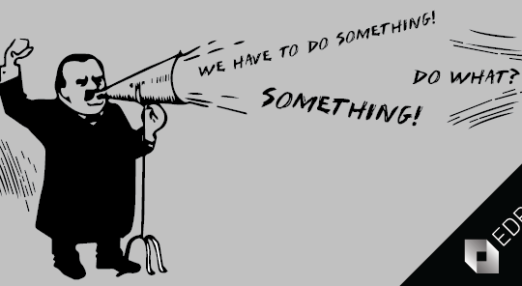
Press Release: EU Parliament deletes the worst threats to freedom of expression proposed in the Terrorist Content Regulation
Today, 17 April 2019, the European Parliament (EP) adopted its Report on the proposed Terrorist Content Regulation. Although it has been questioned whether this additional piece of law is necessary to combat the dissemination of terrorist content online, the European Union (EU) institutions are determined to make sure it sees the light of day. The […]
Read more
